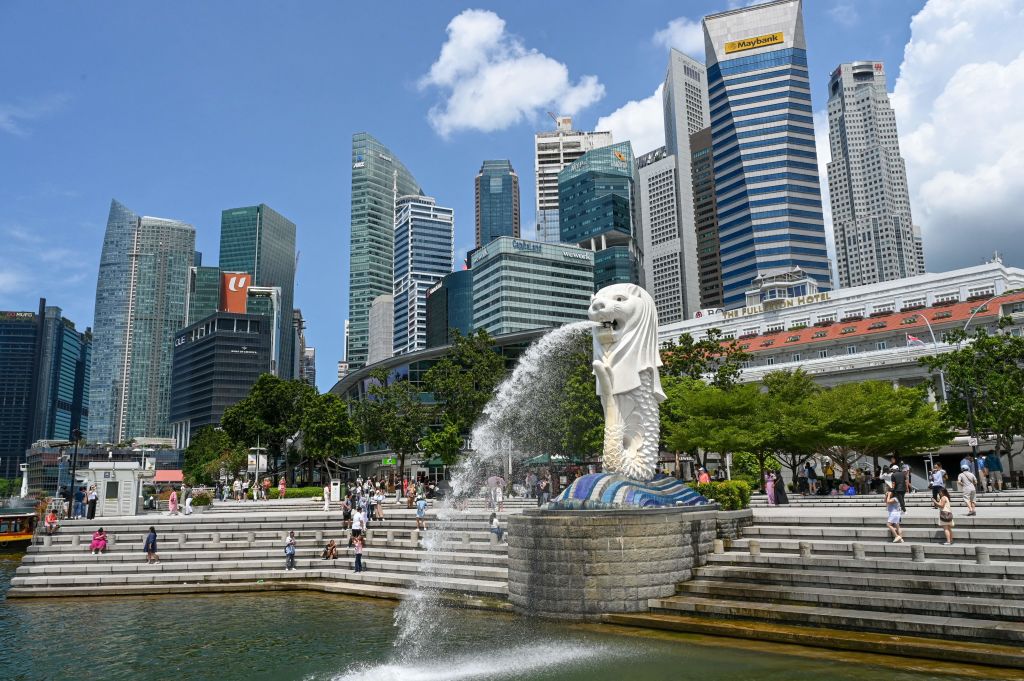
Singapore authorities seized or froze assets worth more than S$2.8 billion ($2 billion) in one of the city-state’s largest money laundering investigation, a senior official said on Tuesday while signaling the government could tighten immigration rules to curb illicit inflows.
The amount disclosed to parliament by Second Minister for Home Affairs Josephine Teo is higher than the S$2.4 billion previously announced.
The probe is ongoing and authorities continue to interview Singaporeans and foreigners alike, she said. The city-state will review how to tighten its immigration verification checks, though “no screening process is fool-proof,” said Teo, who also heads the Ministry for Communications and Information.
“Singapore takes money laundering seriously,” said Teo. “We do not turn a blind eye to any risks, once we become aware of them. This is not the first time that we have taken serious enforcement action against money laundering offenses. Nor will it be the last.”
More From TIME
Read More: A Wave of Scandals Is Testing the Singaporean Government’s Ability to Take Criticism
Singapore has long capitalized on its reputation for clean governance and zero tolerance for crime to attract foreign investments and the well-to-do. That has been called into question after the authorities seized assets and arrested 10 foreigners — all originally from China — for alleged forgery and laundering proceeds from scams and illegal online gambling.
The island nation is working with international counterparts and local regulators will take action against those who have fallen short, she said.
The case, which erupted into the public view in mid-August, is shining a light on fund flows from abroad and whether the $2 trillion financial sector driving the city-state’s economy has done enough to block dubious transactions. Singapore has seen an influx of affluent Asians, including those from China, seeking safe investments amid crackdowns in the mainland and pandemic restrictions.
Lawmakers had previously submitted dozens of questions to be answered by the government, including the need to tighten existing money-laundering rules, further steps to prevent cross-border crimes and immigration checks.
“Most people are not illegal money launderers or criminals,” Teo said. “If the rules are too tight, then it is the vast majority of innocent applicants who will be unnecessarily penalized.” At least 240 individuals were convicted of money laundering offenses from 2020 to 2022 with the police seizing more than S$1.2 billion worth of assets, she said.
Read More: The Ultra-Wealthy World of Crazy Rich Asians Is a Real Thing. Here's Why
Cross-border wealth inflows into Singapore totaled $1.5 trillion last year, according to an estimate by Boston Consulting Group. This makes the country the world’s third largest offshore financial hub after Switzerland and Hong Kong where the wealthy park their assets.
The authorities said last month additional operations saw the seizure of bank accounts with a value of more than S$1.13 billion and cryptocurrencies of over S$38 million. The police have also issued orders to prevent the sale of more than 110 properties and 62 vehicles totaling over S$1.24 billion.
Banks in the wealthy island-nation are increasing scrutiny of some Chinese-born clients with other citizenships.
Some lenders have been reviewing new account openings and transactions with clients of Chinese origin carrying investment-linked passports, Bloomberg reported. At least one international bank is closing some accounts of clients with citizenship from countries including Cambodia, Cyprus, Turkey and Vanuatu.
—With assistance from Yi Wei Wong, Faris Mokhtar and Aradhana Aravindan.
More Must-Reads from TIME
- Donald Trump Is TIME's 2024 Person of the Year
- Why We Chose Trump as Person of the Year
- Is Intermittent Fasting Good or Bad for You?
- The 100 Must-Read Books of 2024
- The 20 Best Christmas TV Episodes
- Column: If Optimism Feels Ridiculous Now, Try Hope
- The Future of Climate Action Is Trade Policy
- Merle Bombardieri Is Helping People Make the Baby Decision
Contact us at letters@time.com